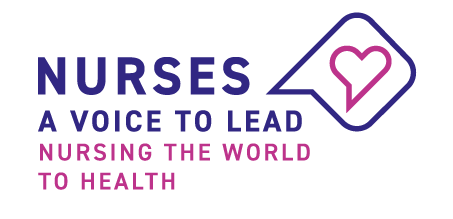Nurses’ Concern for Adolescents, Uganda
Juliet Kigonya lost her parents at a very young age. Her father died when she was one and her mother passed away three years later. Her mother had been ailing a long time, and at the tender age of four, Ms Kigonya was aware of the insurgence that plagued the country and made access to medical services difficult.
‘There was no medicine, the healthcare facilities were broken down and there were no healthcare workers. Even at Lubaga Hospital, where I was eventually taken, almost all its structures had been torn apart,’ she says.
Seeing her mother unable to talk or move on her deathbed was devastating. She would not know how much influence this would have on her career choice until years later when someone suggested that she be an accountant.
‘Why an accountant? I want to take care of the sick, because of what my mother went through.’
Mengo Nurses Training School was her first stop. She got her Certificate in Nursing two years later and then worked at Mengo Hospital. While there she decided to further her studies after a presentation by the Aga Khan School of Nursing and Midwifery. She did not expect what she found at the campus when she enrolled for a diploma in nursing:
‘What surprised me was that you could relate with your lecturers as though you were old friends. They did not demand to be addressed in titles. That touched me so much. I also liked that you could work as you study because I didn’t have the money for fees. Fortunately, grants from Johnson & Johnson eased the burden somewhat.’
The courses were eye-opening. ‘When I was doing my community studies module, I was touched when the lecturer described the sexual and reproductive health challenges different communities went through. I kept asking myself why we spent so much time in hospitals and not on the ground addressing these challenges.’
During one of the community visits, Ms Kigonya met a girl who had been sexually assaulted by a motorbike operator who infected her with HIV. Despite their interventions, she and her team were unable to save the young woman.
It was this event that filled her with a newfound passion and led to the creation of Nurses’ Concern for Adolescents. Ms Kigonya wanted this organisation to address adolescents’ sexual and reproductive health issues, and she was also very clear that nurses would do the work.
‘Nurses were often perceived as rude and impatient. I wanted people to know that there are good nurses who can understand and share their problems.’
Since its inception in 2012, Nurses’ Concern for Adolescents has gone into schools in Wakiso and Kampala to engage the youth in sexual and reproductive health education, and sensitise them on the dangers of drug abuse. The results have been encouraging.
‘I have had young people calling as early as 3.00am when they’ve had unprotected sex. I’ve been able to take them to hospitals where they are screened for HIV and put on post-exposure prophylaxis, and I give God the glory for that. Others tell us about the unsafe abortions they have gone through, and we offer counselling.’
School nurses have benefitted too.
‘With support from the Ministry of Health and the Uganda Nurses and Midwives Council, I have been organising school nurses’ workshops to reinforce levels of ethics and professionalism. We empower and equip nurses with skills to handle adolescents’ issues. Once the adolescents know that they can trust nurses, our work will be even more effective.’
In her first year at the training school in Mengo, Ms Kigonya was elected to serve as the national speaker for student nurses. Today, her resolve to reduce teenage pregnancies, HIV infections and drug abuse among adolescents is unshakable. Through her leadership other nurses have found a sense of purpose, and she encourages others to follow suit.

